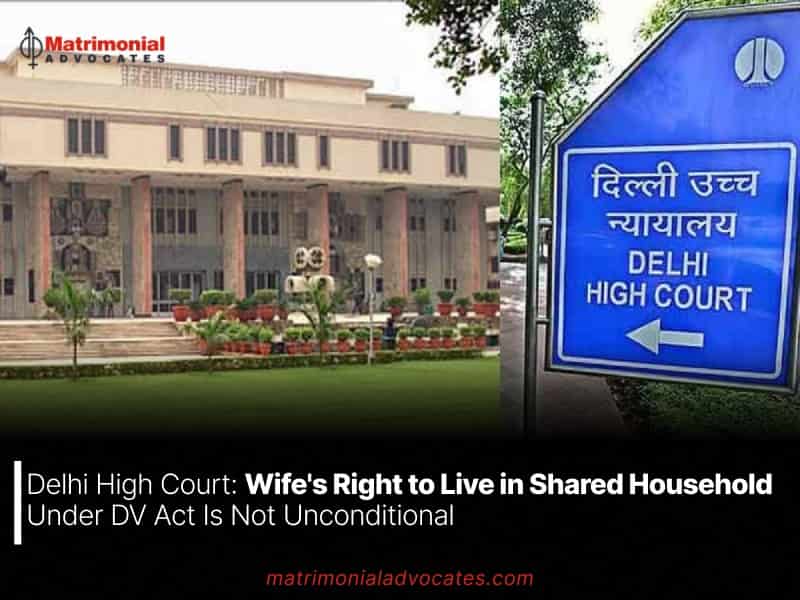
The Delhi High Court ruled on Monday that a wife’s right to reside in the shared household under the Protection of Women from Domestic Violence Act, 2005 (DV Act), is not unconditional, especially if she is gainfully employed.
Justice Neena Bansal Krishna, sitting as a single bench, made this observation while rejecting an appeal by a woman seeking to continue living in her marital home despite being employed.
The case involved a wife who had filed a domestic violence complaint after marital discord arose within a year of marriage. While she initially moved into her husband’s family home, she continued living there alone after her husband and in-laws moved out due to strained relations. In response, her husband and his family filed a civil suit seeking her eviction from the property.
The wife sought protection under Section 19 of the DV Act, which allows women to claim the right to reside in the shared household, regardless of ownership, as long as they have lived there after marriage. However, once it was revealed that she was employed at Accenture Solutions Private Limited and held an MBA degree, the lower courts concluded that she was not in a helpless situation that would justify her continued residence in the shared household.
Initially, the magistrate issued an order preventing the husband and in-laws from evicting the wife and granted her interim maintenance of Rs. 5,000 per month. However, after learning that the wife had secured employment, the magistrate reversed the eviction order, ruling that her financial independence made her ineligible to claim an absolute right to reside in the household.
The wife challenged this decision in a Sessions court, arguing that her right to reside in the shared household under the DV Act could not be revoked. However, the Sessions Court upheld the magistrate’s ruling, prompting her to take the case to the Delhi High Court.
In its October 21 order, the High Court dismissed the wife’s appeal, stating that her employment status weakened her claim to an absolute right to reside in the shared household.
The Court noted that although Section 19 of the DV Act recognizes a daughter-in-law’s right to reside in the shared household, this right is not absolute and is subject to legal conditions, including eviction through due process and the provision of alternative accommodation or rent.
“No absolute right of residence can be claimed by the petitioner. She herself is an educated woman who has done her MBA and is employed. It is not a case where she is helpless or where any attempt is being made to leave her without shelter,” the Court observed.
The Court emphasized that the petitioner’s elderly father-in-law, who owns the home, should not be deprived of his residence at his advanced age. The magistrate had ordered that the wife be provided with an alternative flat in the same colony on rent, ensuring she would not be left homeless.
The Court determined that there were no errors in the lower courts’ decisions and dismissed the wife’s appeal, reiterating that her right to residence under the DV Act must be balanced against other considerations, including the rights of the property owner and her own financial independence.
“There is no infirmity in the Order of the learned M.M which has been rightly upheld by the learned District & Sessions Judge. The present petition has no merit which is hereby dismissed along with application, if any,” the Court ordered.





